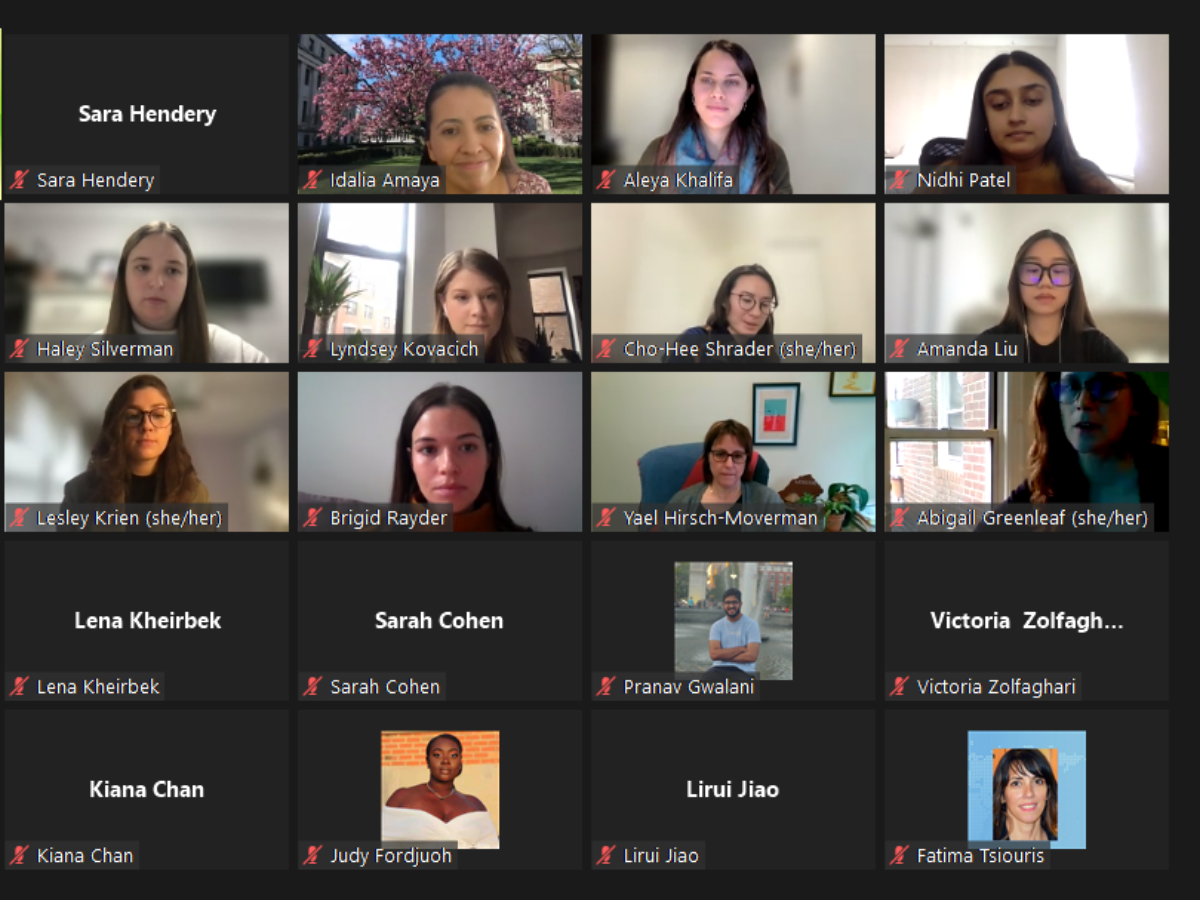On January 28, 2022, students supported by ICAP at Columbia University through the Next Generation Internship program presented their 2021 research posters.
Over the summer and fall of 2021, Next Generation Internship participants completed required practica on a range of global health topics, including health systems strengthening, HIV surveillance, COVID-19 community outreach, and beyond. Practica are executed through ICAP-supported programs in Africa, Asia, or New York, and under mentorship of ICAP staff and affiliates.
While gaining real world experience in low-resource settings, student interns – who come from either the Columbia Mailman School of Public Health, School of Nursing, College of Dental Medicine, or College of Physicians and Surgeons – learn practical research skills, such as analyzing data, developing manuscripts, and conducting key informant interviews.
One such student is Lyndsey Kovacich.
Under the mentorship of Joanne Mantell, PhD, and Julie Franks, PhD, Kovacich presented a poster on attitudes toward pre-prophylaxis (PrEP), an HIV-prevention medication, among female sex workers (FSW) and male clients (MC) in Kenya. The results of her study showed shared positive attitudes toward HIV prevention and perceived PrEP benefits among FSW and MC, underscoring the potential to bridge gaps in HIV prevention services.
“I am extremely grateful to my mentors for taking the time to facilitate my learning and encourage my growth as a public health professional,” said Kovacich. “After graduating, I hope to continue working in global health research with a focus on HIV and sexual and reproductive health. This experience has already helped me to become a Teaching Assistant for a Qualitative Data Analysis course in the Population and Family Health department, and I’m confident I will continue to draw on what I learned from this experience in future work and research opportunities.”
Student Judy Fordjuoh also presented her research findings at the poster session. Assessing health services stigma and discrimination in Zambia, she showed that unwelcome comments and judgment from health care workers led some select populations to avoid visiting public health facilities.
Student Lesly Krien assessed the diversification and decentralization of ICAP’s donor portfolio, and even developed a donor resource guide for ICAP country offices.
With the program now in its 10th year, this cohort of 24 Next Generation students is the largest to date. Fatima Tsiouris, deputy director of Human Resources for Health Development at ICAP, said the program is an important opportunity for students to immerse themselves in real-life public health situations.
“ICAP’s Next Generation program offers students committed to solving some of the most pressing and complex public health issues we face today with first-hand experiences, both locally and globally,” Tsiouris said. “Training our future leaders and building their skills to address future public health threats is fundamental to ICAP’s vision and mission.”
To view the Next Generation poster presentations, check out the following videos:
About ICAP
A major global health organization that has been improving public health in countries around the world for nearly two decades, ICAP works to transform the health of populations through innovation, science, and global collaboration. Based at Columbia Mailman School of Public Health, ICAP has projects in more than 30 countries, working side-by-side with ministries of health and local governmental, non-governmental, academic, and community partners to confront some of the world’s greatest health challenges. Through evidence-informed programs, meaningful research, tailored technical assistance, effective training and education programs, and rigorous surveillance to measure and evaluate the impact of public health interventions, ICAP aims to realize a global vision of healthy people, empowered communities, and thriving societies. Online at www.icap.columbia.edu.








